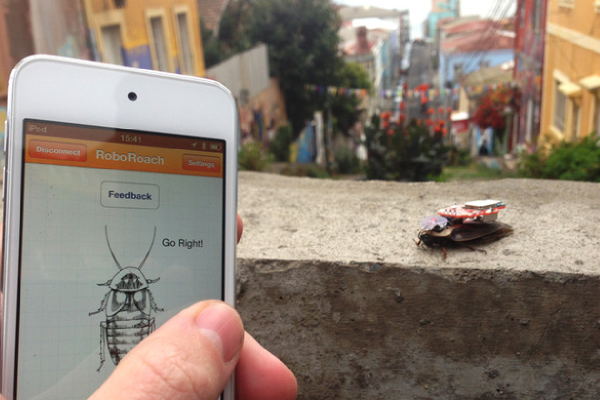
'RoboRoach' is Bad News in So Many Ways (Op-Ed)

Marc Bekoff, emeritus professor at the University of Colorado, Boulder, is one of the world's pioneering cognitive ethologists, a Guggenheim Fellow, and co-founder with Jane Goodall of Ethologists for the Ethical Treatment of Animals. This essay is adapted from one that appeared in Bekoff's column Animal Emotions in Psychology Today. He contributed this article to LiveScience's Expert Voices: Op-Ed & Insights.
Earlier this month, as I was sitting down to write and thinking about all of the good things that are happening for nonhuman animals (animals), I received an email about an essay called "The Do-it-Yourself Cyborg Cockroach: Educational or Cruel?"
I thought it was a joke, but unfortunately it isn't.
The essay, by Steve Williams, describes a product — and animals are not products — called "RoboRoach, " from Backyard Brains. This project requires people — they hope to attract youngsters to the field of neuroscience — to do surgery on cockroaches and the kit comes with a roach-sized backpack unit, electrodes and a cockroach, and will soon be selling for $99.99.
Cyborg cockroaches who can be controlled by smartphones teach many wrong lessons, including encouraging bad citizen science and utterly inhumane education. The product also suggests that quality and useful neuroscience"research" is something you can do from your home, or wherever you and your smartphone may be. These are thoroughly misguided messages that invite mishandling and abuse of the cockroaches — non-scientists or novice scientists cannot instantly become skilled neuroscientists. In laboratories in which cockroaches and other insects are used in research there is a period of training under the guidance of an experienced researcher. Of course, with the explosion of real neuroscientific research, including non-invasive neuroimaging, scientists are learning a lot about how brains work.
There also is no reason to assume cockroaches cannot feel pain. Indeed, there is evidence that insects are capable of feeling pain and have what are called nociceptors, sensory receptors that are sensitive to pain. However, even if people learn cockroaches cannot for some reason feel pain, it still would not be okay to use them in invasive research or in projects like RoboRoach. [Gallery: Dazzling Photos of Dew-Covered Insects ]

A reader recently sent me a letter received from Backyard Brains in response to the reader's questioning the ethics and value of RoboRoach. The company's letter countered that, "The lesson plans that come from this product are not trivial nor silly. It is not a toy, but a tool to learn about how our brains work. Using the RoboRoach, you will be able to discover a number of interesting things about nature."
Sign up for the Live Science daily newsletter now
Get the world’s most fascinating discoveries delivered straight to your inbox.
The letter then listed a few experiments, such as one for neural control of behavior and another on learning and memory, but they are incredibly ambitious goals that I don't think would likely be achieved in a semester-long college laboratory course, and surely not in a makeshift home/phone "laboratory."
There is nothing at all good or right about cyborg roaches. Please write to the producers and ask them to terminate this ridiculous and inhumane project right now — you can contact them here.
Bekoff's most recent Op-Ed was "For Modern Society, Are Animals 'The Ghosts in Our Machine'?" This article was adapted from "'RoboRoach' is Bad News in So Many Ways" in Psychology Today. The views expressed are those of the author and do not necessarily reflect the views of the publisher. This version of the article was originally published on LiveScience.










